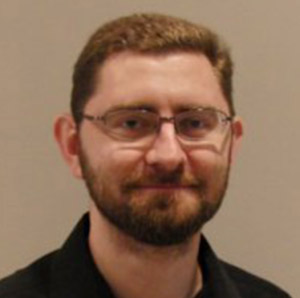
FAMU-FSU College of Engineering
A Florida State University mechanical engineering professor has received a highly competitive grant from the National Science Foundation to build faster, more agile robots to both run and climb across several different terrains.
Florida A& M University-Florida State University College of Engineering Assistant Professor Jonathan Clark received the NSF Career Award, a prize designated for scientists still in the early stages of their academic careers who show great potential. Clark’s award came with a $402,804 grant to help him move his research to the next stage.
“I’m interested in designing robots and understanding how they can move and interact with the world in different ways,” Clark said. “How do you get a robot to move well in more than one domain?”
Clark is hoping to build robots that can move faster over treacherous terrains. If successful, advances he makes in the lab could lead to unprecedented mobility for robots involved in search and rescue missions or hazardous material clean up projects.
His lab at Florida State is already chock-full of robotic prototypes. Some robots crawl up walks mimicking the movements of a gecko. Others scurry across the floor like a cockroach. He hopes one day to build a robot that moves like a squirrel.
Clark’s robots are often based on animal movements. He collaborates with biologists who study how animals — specifically geckos, cockroaches and squirrels — traverse land, trees and other surfaces. He then builds robots that mimic these movements.
The idea is that these small animals can often go to places humans cannot because they move in different ways.
The grant money will allow him, with the help of a graduate student, to take a step back from the day-to-day implementation demands and really examine the science behind how animals move and how they might translate that to a robot.
“Animals go forward, but they also bounce up and down and side to side as they run, “ he said. “They pitch. They roll. They’re doing this complicated 3D motion. How do all of these work together to create fast, stable and efficient locomotion?”
Emmanuel Collins, chair of the Department of Mechanical Engineering, who shares the physical laboratory that Clark uses, said the department was extremely proud of Clark’s work thus far.
“In a few years, I expect him to be considered one of the best researchers in his specialty of legged robot locomotion,” Collins added.
Though Clark’s focus will be on building more effective robots, the NSF Career Award also requires recipients to undertake an educational project to help further knowledge in their specific field.
Clark plans on working to create a stronger robotics community, bringing together various researchers at Florida State and Florida A& M with Leon County students, so that researchers can share a bit of their expertise and help interest more students in engineering.
FAMU-FSU College of Engineering Dean Yaw Yeboah said that he was pleased to see Clark win the award and that this would enable him to share his expertise with more students both within the college and in the greater community.
“He is truly a teacher-scholar who is passionate about his teaching and research especially on robotics,” Yeboah said. “We look forward to him making the best use of the award to advance his career and the education and training of our students. I have no doubt that great things will come from this project.”




